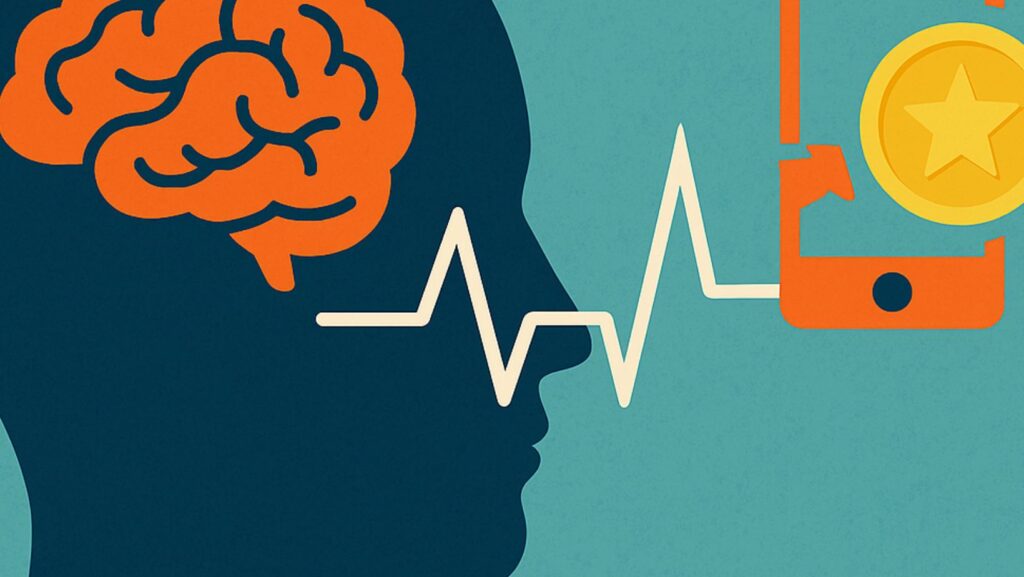In today’s hyper-connected digital world, we engage with apps, platforms, and games more than ever before. Whether it’s checking messages, scrolling social feeds, or participating in gamified systems, our brains are being trained — often unconsciously — to chase rewards. One such example is 1win, a platform that combines elements of digital strategy, engagement, and reward-based design. But what does this mean for our well-being? And how can we interact with such platforms in a healthier, more intentional way?
This article explores the psychology of digital rewards, the role platforms like 1win play in shaping our habits, and how we can develop a more balanced relationship with these technologies.
Understanding the Digital Reward Loop
At the core of most high-engagement platforms lies the concept of instant gratification — receiving small, dopamine-triggering rewards for simple actions. In gaming or gamified environments, these rewards might take the form of points, unlocks, streaks, or bonuses.
Psychologists refer to this as a variable reward schedule — where the brain keeps anticipating the next hit, unsure when it will arrive, much like pulling a lever on a slot machine. This uncertainty creates a loop: trigger → action → reward → anticipation, which encourages repeated behavior.
1win, like many other modern platforms, uses such design elements not to trap users, but to increase interactivity and perceived value. However, without conscious reflection, users may find themselves engaging compulsively — not for enjoyment, but for the sensation of chasing outcomes.
The Science Behind Our Responses
Digital rewards exploit some of the brain’s most fundamental systems:
- Dopaminergic pathways: These regulate motivation and pleasure. Unexpected rewards release more dopamine than expected ones — reinforcing usage.
- The lizard brain (amygdala and basal ganglia): These structures play a role in repetitive behavior, especially when tied to instant rewards.
- Neuroplasticity: Repeated actions form neural patterns. Over time, this can normalize certain behaviors and even build micro-addictions.
This doesn’t mean digital platforms are inherently harmful. Rather, understanding how they affect us gives us the ability to manage our usage intentionally.
How Platforms Like 1win Influence Habit Formation
The influence of platforms like 1win goes beyond pure entertainment. Their structure can lead users to:
- Develop time-based routines, such as logging in daily to maintain progress or rewards;
- Experience emotional dependency, especially if rewards serve as an emotional outlet;
- Form habit loops that interfere with productivity, attention span, or emotional regulation.
What’s unique about 1win is its dual appeal: it attracts users with interactive mechanics while also offering real-time gratification. This mirrors the design of many apps outside the gaming space — including fitness trackers, learning platforms, and social media.
The Challenge of Finding Balance
For many, the solution isn’t quitting these platforms, but rather redefining their role in everyday life. The key is mindful engagement — interacting with technology in ways that align with personal values, mental health, and long-term goals.
Here are common signs of imbalance:
- You reach for your device without a conscious reason;
- You feel anxious or restless when disconnected;
- You lose track of time or neglect responsibilities while engaged;
- You rely on online engagement for emotional regulation (boredom, stress, etc.).
Recognizing these signs is the first step toward a healthier digital lifestyle.
Practical Strategies for Healthier Use
Here’s how to interact with high-engagement platforms like 1win without compromising mental well-being:
1. Set Intentional Time Limits
Instead of unrestricted access, schedule specific time blocks for platform interaction. Use built-in screen time trackers or apps like Forest or Freedom to stay aware.
2. Reflect on Motivation
Ask yourself: “Why am I logging in right now?” If it’s boredom or avoidance, consider an offline alternative like stretching, journaling, or a walk.
3. Anchor Engagement to Goals
If you enjoy platforms like 1win, integrate them into broader goals — e.g., using rewards as a break after completing focused work or chores.
4. Deactivate Push Notifications
Many behavioral loops are triggered by external cues. Turning off notifications gives you more control over when and how you engage.
5. Take Regular Digital Detoxes
Plan full or partial breaks — even a 12–24 hour digital detox can reset reward circuits and restore awareness.
Reclaiming Agency in a Reward-Driven World
We’re not helpless victims of technology. We can design our environment to support healthier behaviors. One powerful method is to substitute passive reward-seeking with active forms of engagement — like movement, learning, or social connection.

Platforms like 1win aren’t inherently unhealthy. In fact, when used intentionally, they can offer enjoyment, relaxation, and even strategic thinking. The difference lies in how we use them, not whether we use them.
When It Becomes a Mental Health Concern
While most users engage with platforms like 1win without negative consequences, some individuals may experience deeper issues such as:
- Compulsive usage that disrupts work, relationships, or sleep;
- Financial stress from loss of control;
- Anxiety or mood issues linked to reward anticipation or social comparison.
In such cases, it’s important to seek professional support. Therapists trained in digital addiction or behavioral psychology can help unpack the underlying dynamics and build sustainable coping strategies.
Final Thoughts: Mind Over Mechanism
Digital platforms will only become more sophisticated. They’ll offer more immersion, better personalization, and smarter reward systems. But as users, we can become smarter too.
By understanding the psychology behind digital rewards and applying practical awareness, we can enjoy platforms like 1win — not as escapes from life, but as parts of a balanced, intentional, and mentally healthy digital ecosystem.

